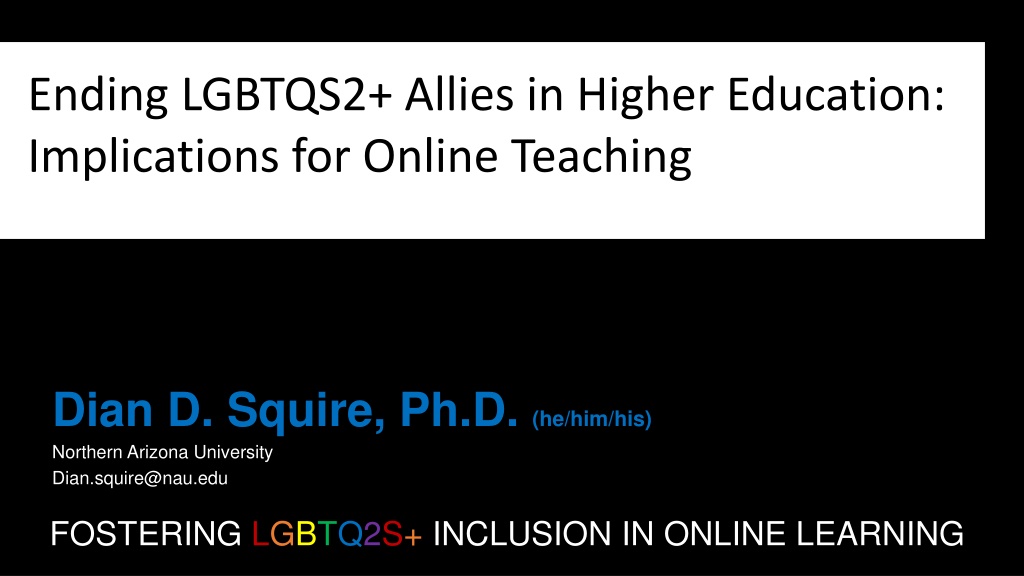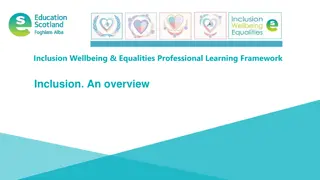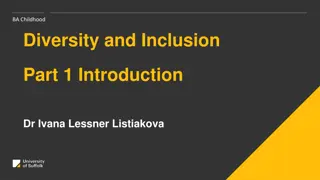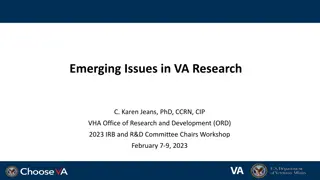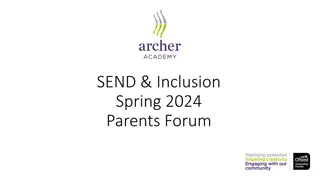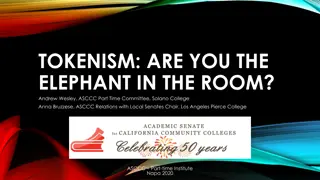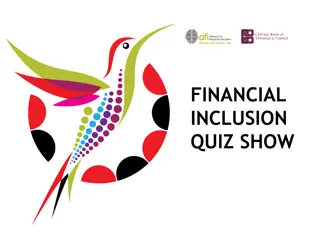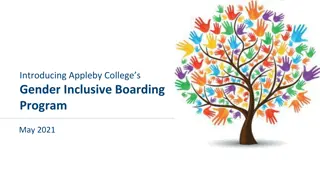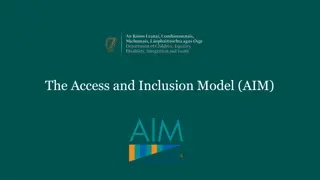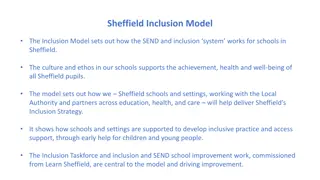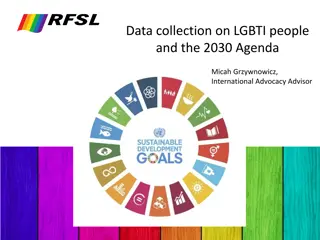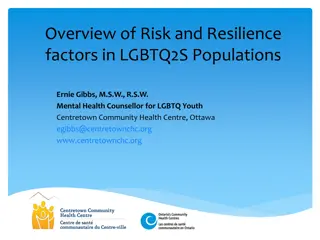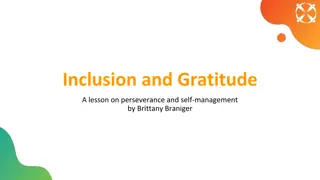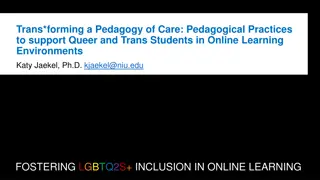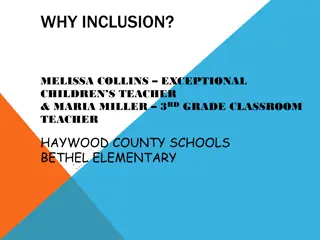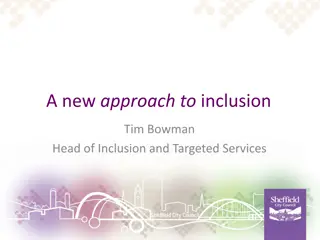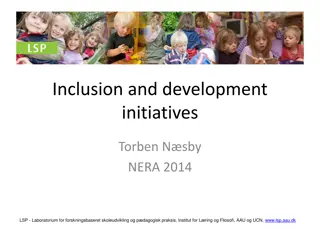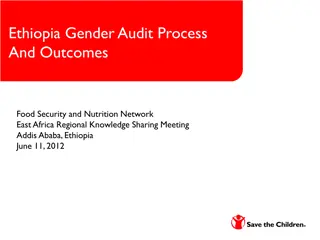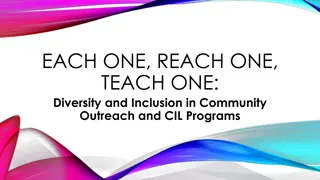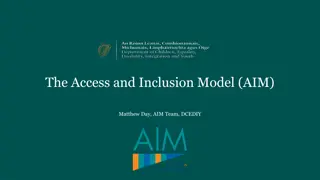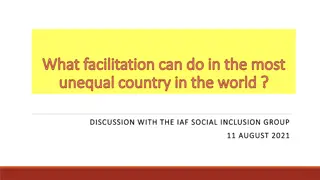Fostering LGBTQ2S+ Inclusion in Online Learning
Solidarity work in higher education involves an ongoing, principled yet ego-conscious, and action-engaged process. The concept of the ally industrial complex highlights the commodification and exploitation of allyship in activism. Being an accomplice signifies working together towards total liberation and decolonization is necessary to challenge colonial constructs. Different types of allies, including self-proclaiming, gatekeepers, and anthologizers, play differing roles in advocacy efforts.
Download Presentation

Please find below an Image/Link to download the presentation.
The content on the website is provided AS IS for your information and personal use only. It may not be sold, licensed, or shared on other websites without obtaining consent from the author.If you encounter any issues during the download, it is possible that the publisher has removed the file from their server.
You are allowed to download the files provided on this website for personal or commercial use, subject to the condition that they are used lawfully. All files are the property of their respective owners.
The content on the website is provided AS IS for your information and personal use only. It may not be sold, licensed, or shared on other websites without obtaining consent from the author.
E N D
Presentation Transcript
Ending LGBTQS2+ Allies in Higher Education: Implications for Online Teaching Dian D. Squire, Ph.D. (he/him/his) Northern Arizona University Dian.squire@nau.edu FOSTERING LGBTQ2S+ INCLUSION IN ONLINE LEARNING
Solidarity Work Is: An on-going, iterative process; Always incomplete; Principled yet ego-conscious; Educated and affective; Historicized, intersectional, critical; and, Action-engaged.
The Ally Industrial Complex in HE The ally industrial complex relies on, activists who s (sic) careers depend on the issues they work to address. These nonprofit capitalists advance their careers off the struggles they ostensibly support they build organizational or individual capacity and power as they strive to become the ally champions [T]he commodification and exploitation of allyship is a growing trend in the activism industry. (p. 1)
Accomplice One who has a fiercely unrelenting desire to achieve total liberation, with the land, and together there is a we , and we most likely will have to work together we fight back or forth, together, becoming complicit in a struggle towards liberation, we are accomplices (p. 2).
A Word on Decolonization Colonial acts continue to articulate to Native peoples that they do not belong on these lands and their ways of knowing and being are invalid, seen as violent to a white racial order, and are deficient. A settler colonial logic is concerned with displacement, control, elimination/substitution, and reconstructing of culture rather than an explicit physical violence. One such logic is our current understanding of gender and sex as colonized constructs (binaohan, 2014; Driskill, Finley, Gilley, & Morgensen, 2011; Lugones, 2008).
Types of Allies Self-proclaiming/confessional allies ( I am here to help you! ) Parachuters ( I am from an organization outside the community and here to help ) Academic and Intellectuals ( Let s unlearn oppression; rather than dismantle it ) Gatekeepers ( I have resources and will withhold them if you don t do it the way I want ) Navigators and Floaters ( I know the language but say nothing meaningful and don t commit ) Acts of Resignation ( I give up my agency as an ally in order to stay out of the way and not benefit from allyship when I should be using my privilege to act ) Anthologizers (I ll include you in order to tokenize the best parts of you without regard for the parts that are hard for me to swallow ).
Implications Whose knowledge is valid and valuable, taught and cited, nurtured and cultivated (Anzald a, 2010)? In your classes, who do you do service for and on behalf of and why? What socio-cognitive work do you have to do to be a good faculty member?
Conclusion Becoming allies means helping each other heal. It can be hard to expose yourself and your wounds to a stranger who could be an ally or an enemy. But if you and I were to do good alliance work together, be good allies to each other, I would have to expose my wounds to you and you would have to expose your wounds to me and then we could start from a place of openness. -Gloria Anzald a
